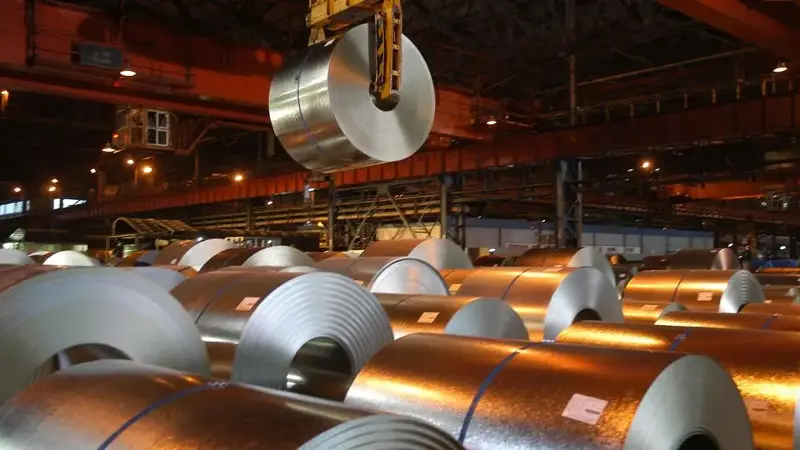
New Delhi: The Union steel ministry has deferred the implementation of a 13 June quality control order (QCO) on imports of finished steel products by four months, after small importers raised concerns regarding shipments already in transit.
According to a piece of correspondence seen by Mint, the ministry, in consultation with the industry on 7 July, decided to defer the tightening of imports by allowing shipments of steel products without Bureau of Indian Standards (BIS) certification.
The 13 June notification had made it mandatory for importers to get a BIS stamp of approval.
The notification was an addendum to an August 2024 QCO, and specifically extended the QCO requirements to the input materials used in steel and steel products. This meant that both finished steel products and the raw materials used in their production, including imports, would have to comply with BIS specifications.
Also read | India to crack down on substandard Chinese paper imports amid rare-earths row
But in the 7 July stakeholder consultations, the government deferred the plan and decided that the QCO will not be applicable to input materials used by steel mills abroad.
"Ministry of Steel is aware of the concerns of shipments that have already reached/are reaching the ports in India. A suitable timeline for ensuring that there are no disruptions in clearing such consignments, is being considered," the communication said.
An email query sent to the union steel ministry remained unanswered.
The 13 June notification, if implemented, would have adversely impacted MSME traders in the steel sector, who largely rely on imported raw material on account of increased compliance burden and costs.
Demand to withdraw
Importers wrote to the steel ministry asking for the notification to be withdrawn. The implementation of the QCO, which was notified on 13 June and implemented only three days later, put approximately ₹150 crore of advance payments in jeopardy, according to the letter written by industry body Federation of Associations of Maharashtra (FAM) on 18 June.
"Importers who placed orders months ago under pre-existing regulations are now facing uncertainty. Shipments already in transit or contracted prior to 16th June are suddenly non-compliant, risking needless financial loss and supply disruption," said the letter.
Also read | India plans an enabling provision for domestic industry to skirt QCOs
The government in its 7 July consultation also set up a timeline for BIS certification. It was decided that after proper documentation was submitted by steel mills, BIS would visit the plants within two months. In the following two months, the certificate would be issued, according to the correspondence seen by Mint.
Breathing space for importers
"QCOs are applicable to domestic producers also, not just for imports. However, they can act as a non-tariff barrier in global trade, as such regulations can raise the costs of imported steel, squeeze availability and delay shipments. At the moment, shifting from a non-certified international supplier to a certified one will add to cost (for importers) and disrupt production as well," he said.
Also read | ‘QCO for cotton bales to boost exports’
Firoz added that QCOs are used to protect the industry from low-priced materials of unspecified quality, the proliferation of which can harm not only the steel industry but other downstream industries, too.
In May, 0.661 million tonnes of finished steel was slated for imports under 23,797 such applications, as per the SIMS portal monthly report by the union steel ministry. SIMS stands for Steel Import Monitoring system. Korea, with a share of 36.8%, followed by China, with a 21.3% share of May 2025 imports, were the top two sources.
The highest share of the imports in May 2025—28%—were for the automobile and auto components sector, SIMS data showed.
Union minister of steel H.D. Kumaraswamy stated on X (formerly Twitter) on 7 July, "Held a stakeholder consultation on BIS certification under the QCO framework. The 13 June 2025 Order by the Ministry of Steel is a clarificatory measure, ensuring parity between domestic producers and importers by mandating BIS compliance even for intermediate steel inputs used in final products."
Kumaraswamy added that the move is essential to prevent dumping of substandard steel, protect small and medium enterprises, and uphold the integrity of India's steel standards. "Imports from BIS-certified integrated steel plants will be streamlined, and all concerns raised by industry representatives were duly addressed. India's growth must be backed by strong, self-reliant industrial foundations," the minister said.
